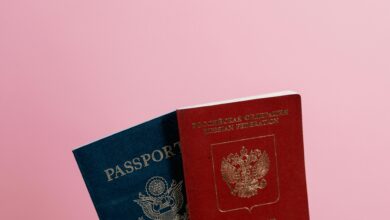Is Travel Insurance Necessary for Domestic Travel in the US? A Detailed Guide

When planning a trip, whether it’s across the country or just a few states away, one question often arises: Is travel insurance necessary for domestic travel in the US? While domestic travel typically involves fewer risks compared to international trips, unforeseen circumstances can still disrupt even the best-laid plans. In this article, we’ll explore the role of travel insurance for domestic travel, its benefits, and whether it’s worth purchasing for your next trip within the United States.
What is Travel Insurance?
Travel insurance is a type of coverage designed to protect travelers from financial losses due to unexpected events that occur before or during their trip. It typically includes benefits such as trip cancellation, medical emergencies, lost luggage, and travel delays. While many people associate travel insurance with international travel, it can also be valuable for domestic trips, depending on your circumstances.
Why Consider Travel Insurance for Domestic Travel?
While domestic travel may seem less risky than venturing abroad, there are still situations where travel insurance could prove beneficial. Here are some common scenarios:
1. Trip Cancellations or Interruptions
Life is unpredictable, and sometimes plans need to change. If you’ve prepaid for non-refundable expenses like flights, hotel stays, or event tickets, trip cancellation or interruption coverage can reimburse you if you’re unable to travel due to covered reasons, such as:
- Sudden illness or injury
- Severe weather disruptions
- Family emergencies
- Job loss or other unforeseen circumstances
For example, imagine booking a $1,000 flight and hotel package for a wedding, only to fall ill days before departure. Without insurance, you might lose your entire investment. With travel insurance, you could recover those costs.
2. Medical Emergencies
Even within the US, medical emergencies can happen. While most Americans have health insurance, coverage can vary significantly depending on your provider and location. For instance:
- Some health plans may not cover out-of-network providers, leaving you responsible for high medical bills if you’re hospitalized far from home.
- Emergency medical evacuation (transport to the nearest adequate medical facility) isn’t always covered by standard health insurance but may be included in certain travel insurance policies.
If you’re traveling to remote areas or engaging in adventurous activities (e.g., hiking, skiing), having additional medical coverage can provide peace of mind.
3. Travel Delays and Missed Connections
Flight delays and cancellations are frustrating enough without the added stress of unexpected expenses. Travel insurance can cover costs associated with delays, such as meals, accommodations, and transportation, especially if the delay is caused by factors beyond your control, like severe weather or mechanical issues.
Additionally, if you miss a connecting flight or important event due to a covered delay, travel insurance can help compensate for related losses.
4. Lost, Stolen, or Delayed Luggage
Losing your luggage can ruin a vacation. Whether your bags are delayed, damaged, or stolen, travel insurance can reimburse you for essential items you need to purchase while waiting for your belongings to arrive. This benefit is particularly useful if you’re traveling for an extended period or carrying expensive gear, such as cameras or sports equipment.
5. Rental Car Coverage
If you plan to rent a car during your trip, consider whether your personal auto insurance or credit card provides sufficient coverage. Many travelers opt for rental car collision damage waivers (CDWs) at the counter, which can be costly. Some travel insurance policies include rental car protection, potentially saving you money while ensuring comprehensive coverage.
When Might Travel Insurance Not Be Necessary?
While travel insurance offers valuable protections, it may not always be essential for domestic travel. Here are some situations where skipping it might make sense:
1. Refundable Bookings
If you’ve booked refundable flights, hotels, or activities, you’re less likely to incur significant financial losses if your plans change. In this case, travel insurance may not add much value.
2. Short Trips
For short, low-cost getaways—such as weekend road trips or visits to nearby cities—the cost of travel insurance might outweigh its potential benefits. Unless you’ve made substantial prepaid arrangements, self-insuring (setting aside funds for emergencies) might suffice.
3. Adequate Health Insurance
If your health insurance offers robust nationwide coverage, including emergency care and ambulance services, you may not need additional medical protection through travel insurance.
4. Low-Risk Destinations
Traveling to familiar, accessible locations with reliable infrastructure reduces the likelihood of encountering major disruptions. For example, visiting a neighboring state with good weather forecasts and minimal logistical challenges may not warrant extra coverage.
Types of Travel Insurance for Domestic Trips
Not all travel insurance policies are created equal. When evaluating options, consider the following types of coverage:
1. Basic Travel Insurance
This typically includes trip cancellation, interruption, and limited medical coverage. It’s ideal for straightforward trips without complex needs.
2. Comprehensive Travel Insurance
As the name suggests, this option bundles multiple benefits into one policy, offering broader protection. Comprehensive plans are suitable for longer trips, high-value bookings, or adventures involving higher risks.
3. Specialty Coverage
Some insurers offer specialized policies tailored to specific activities, such as cruises, ski trips, or outdoor adventures. These plans often include unique provisions, like coverage for extreme sports injuries or missed cruise departures.
4. Annual Multi-Trip Policies
Frequent travelers might benefit from annual multi-trip insurance, which covers multiple domestic journeys throughout the year under a single premium. This can be more cost-effective than buying individual policies for each trip.
How Much Does Domestic Travel Insurance Cost?
The cost of travel insurance varies based on several factors, including:
- The length of your trip
- The total cost of your prepaid expenses
- Your age and health status
- The level of coverage you choose
On average, domestic travel insurance costs between 4% and 10% of your total trip expenses. For example, insuring a $2,000 trip might cost $80–$200. While this may seem like an unnecessary expense, it’s important to weigh the potential savings against the upfront cost.
Tips for Choosing the Right Policy
If you decide to purchase travel insurance for your domestic trip, keep these tips in mind:
- Read the Fine Print: Understand what’s covered—and what’s excluded—under each policy. Pay close attention to terms like “pre-existing conditions” and “covered reasons.”
- Compare Quotes: Shop around using online comparison tools to find the best rates and coverage options.
- Check Existing Benefits: Review your health insurance, auto insurance, and credit card perks to avoid duplicating coverage unnecessarily.
- Assess Your Needs: Tailor your policy to match the specifics of your trip. For instance, if you’re renting a car, ensure your policy includes rental car protection.
- Look for Customer Reviews: Research the insurer’s reputation for handling claims efficiently and fairly.
Alternatives to Traditional Travel Insurance
If traditional travel insurance doesn’t appeal to you, consider these alternatives:
1. Credit Card Protections
Many premium credit cards offer built-in travel protections, such as trip cancellation, baggage delay, and rental car coverage. However, these benefits often come with limitations and exclusions, so review your cardholder agreement carefully.
2. Flexible Booking Options
Opt for flexible booking policies whenever possible. Airlines, hotels, and tour operators increasingly offer no-fee changes or cancellations, reducing the need for insurance.
3. Emergency Savings Fund
Instead of purchasing insurance, set aside funds specifically for travel-related emergencies. This approach works well if you rarely encounter disruptions or prefer to manage risks independently.




